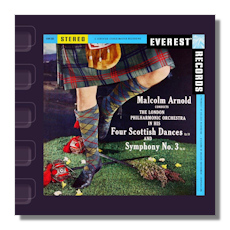
“Carefully wipe surface with soft damp cloth. Return to wrapper after each play.” So reads this disc's booklet. Everest Records was one of several companies in the late 1950s specialising in audiophile sound, recording the majority of their sessions straight onto magnetic film. The label didn't last long, and their LPs have since been reissued sporadically by various CD labels, most recently remastered by Hamburg's Countdown Media. They're available as high quality downloads, but can also be ordered through Amazon as physical discs. The latter is preferable, as Everest's vintage sleeve art still charms. The first batch of releases contains several gems, one of which is this Malcolm Arnold anthology. Played by the orchestra with which the composer spent some years as principal trumpet, it was recorded in 1958 and still sounds astonishingly vivid. The four gaudy Scottish Dances scrub up well under Arnold's direction, with beefy brass and weighty strings. Best, and cheesiest, is the magical, harp-drenched Allegretto, the flute melody anticipating the haunting main theme which dominates Arnold's score to Bryan Forbes' film Whistle Down the Wind.
More interesting is Arnold's Symphony no 3. This disquieting three-movement work is one of the most purely enjoyable things you're likely to hear all year. Unashamedly tonal and superficially populist, it's brilliantly orchestrated, tautly constructed and full of slyly catchy tunes. Repeated listenings serve to emphasise the darkness lying just below the music's surface. Despite his surface ebullience, Arnold was a deeply troubled soul, and the quicksilver flits between comedy and tragedy become increasingly disturbing. The Lento's bleakness is overwhelming, and the symphony's aggressive, militaristic coda is as alarming as it is exciting. There are a few rough edges in the playing, but they're not intrusive – technically, this is difficult music to pull off. Recommended, despite the short playing time.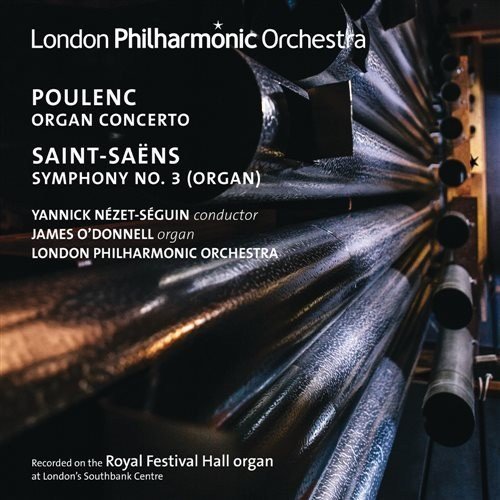
Ten pages of this disc's booklet are devoted to the history and specifications of the Royal Festival Hall's mighty organ, recently revived after a protracted and expensive restoration. My eyes glazed over after a few paragraphs, but my spirits were lifted after a few seconds of Poulenc's insanely catchy Concerto in G minor. This instrument makes a fantastic, sumptuous sound; indescribably rich but never abrasive or strident. James O'Donnell's playing is faultless, capturing the music's craziness, the lurching between raucous vaudeville and Gothic horror. This live recording is beautifully balanced, too; Yannick Nézet-Séguin's London Philharmonic strings clean, clear and incisive with nicely present, well-tuned timpani. It's a belter of a piece, and one which deserves space on the CD shelves of the most ardent organophobe. And this among the best modern recordings.
There have been some lousy recordings of Saint-Saëns' Symphony no 3, notably those where the organ has been dubbed in after the orchestral contribution. Nézet-Séguin's urgency in this scintillating live performance is refreshing. The first and third movements are exhilarating, the engineers allowing us to appreciate Saint-Saëns' idiomatic writing for low winds and horns. There's a velvety slow movement, the organ's contribution a delectable touch of warm colour rather than the main attraction. The scherzo's piano duet is wittily done, and the thunderous chords in the finale lead to a coda which never stops moving forward, despite the weight of sound. You won't begrudge the rapturous audience applause. This isn't profound music, but Nézet-Séguin directs it with utter sincerity and conviction. 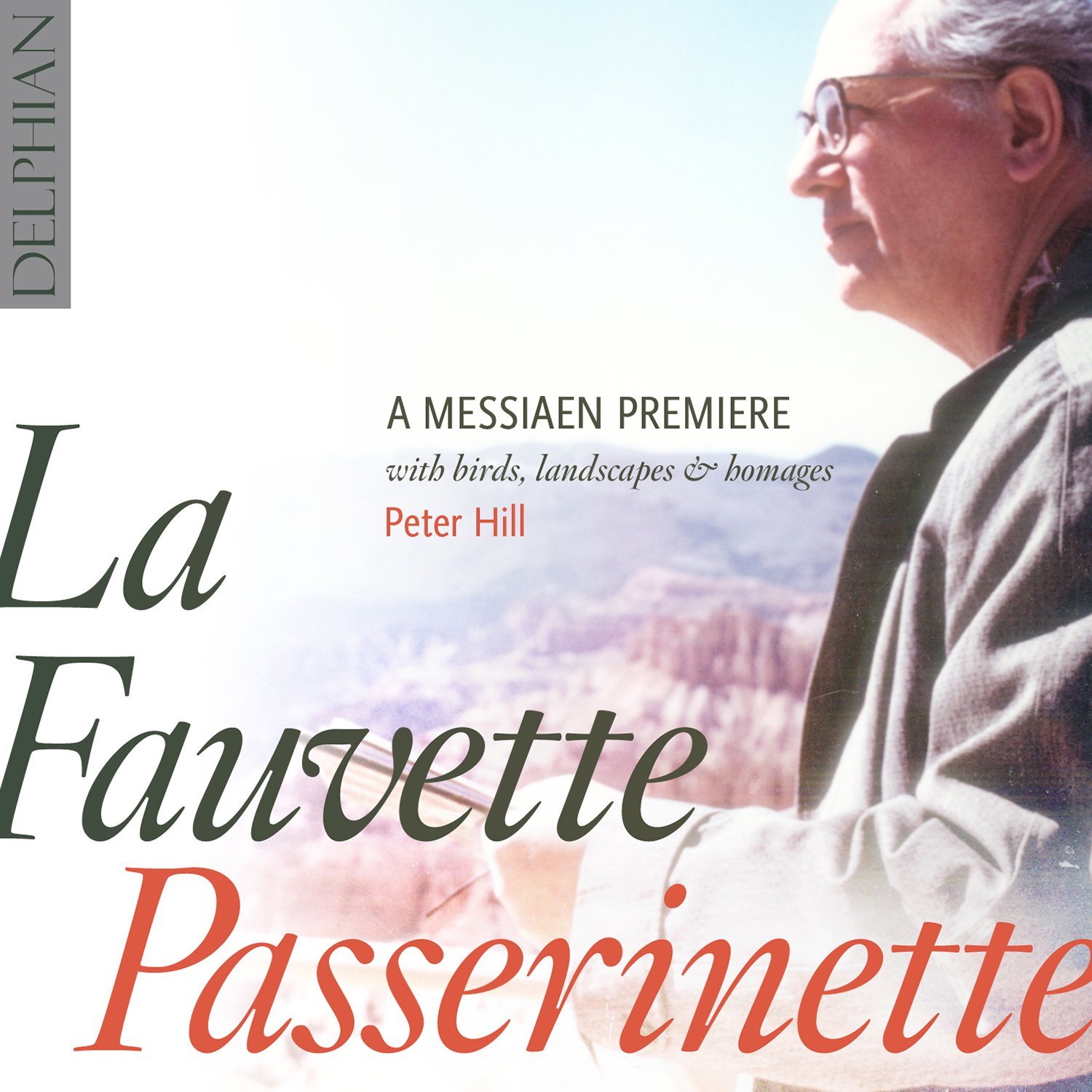
Messiaen scholar Peter Hill recorded the composer's complete piano works in the 1980s, and those vintage performances haven't lost their authority. In 2012, Hill found and deciphered the pencil draft of an unpublished piano piece among Messiaen's sketches. Titled La Fauvinette passerinette (a subalpine warbler in English), Hill argues that it was intended to form part of a sequel to the composer's Catalogue d'oiseaux, and he surrounds this premiere recording with earlier Messiaen pieces alongside works by musicians who inspired, or were inspired by him. Le Traquet stapazin from Catalogue d'oiseaux is as much influenced by the Roussillon coastal landscape as by the call of the black-eared wheateater, whereas La Fauvinette passerinette is more abstract, based entirely on birdsong. The piano writing can be brittle and hard-edged, though the harmonic language is vintage Messiaen. It's fascinating to discover that Hill was able to complete missing dynamics or points of articulation by consulting the composer's notebooks, where he transcribed each bird's call in great detail. The earlier Messiaen pieces include La Colombe, a radiant student work, and a bold, assertive piece composed in memory of his teacher Paul Dukas. Just as well-crafted and appealing is a tiny sight-reading exercise composed for piano students in the 1930s, in Hill's words “as profound and perfect as anything he ever wrote.”
Messiaen-influenced études by Stockhausen, George Benjamin and Julian Anderson are included, and a sequence of pieces subtitled “Birds and Landscapes” takes in Dutilleux, Sculthorpe and Douglas Young's beguiling River. Two very different miniatures composed by Tristan Murail and Takemitsu after Messiaen's death complete the disc. Exemplary performances – Hill's playing is so secure, so warmly communicative that you almost forget he's there. You concentrate solely on the music. Excellent notes (again, provided by Hill) and sonorous recorded sound.

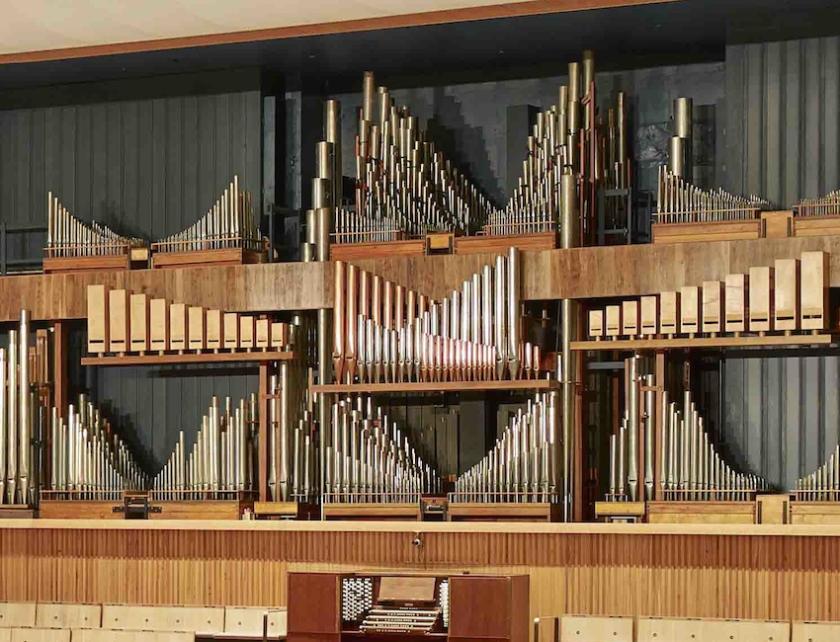





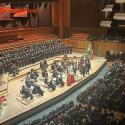






Add comment